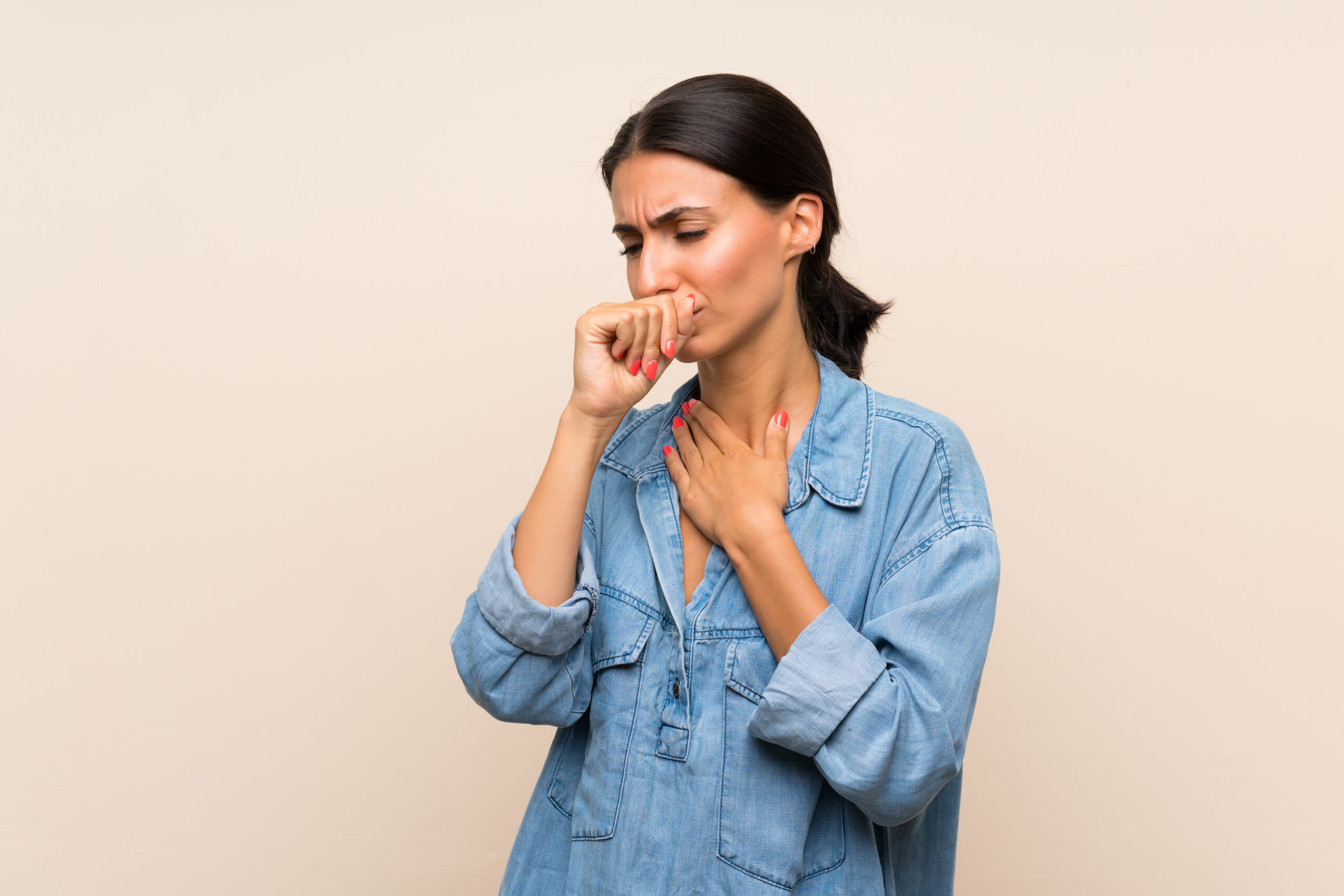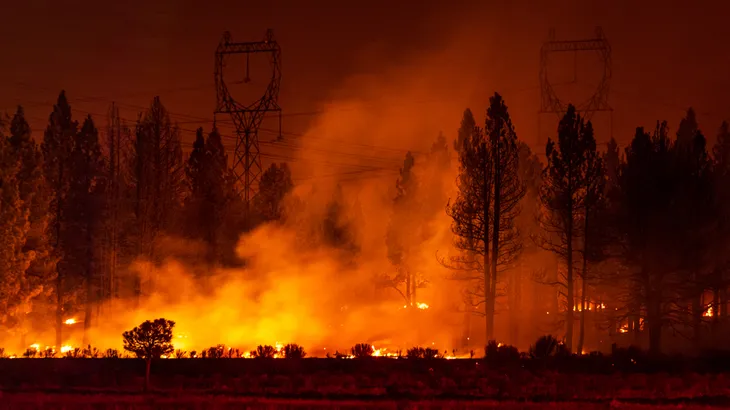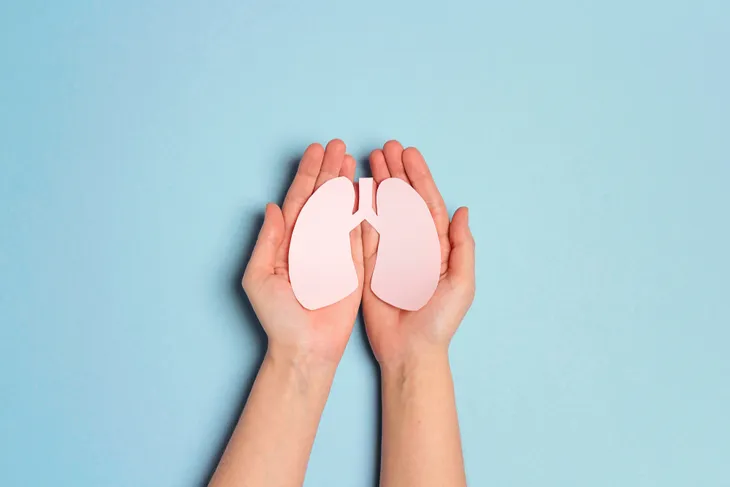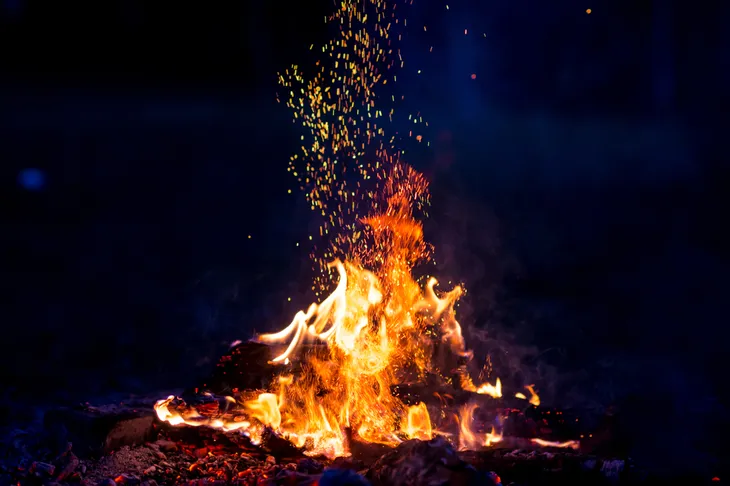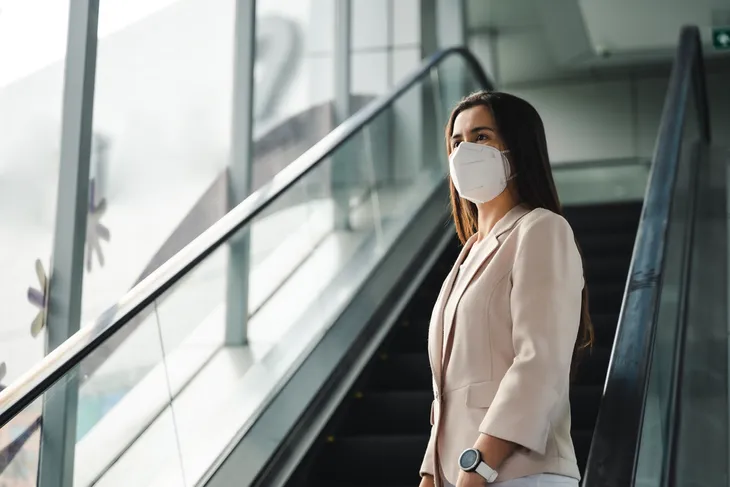- Wildfire smoke can put your health at risk because it’s made of gasses and harmful pollutants.
- The best way to protect your health is to get informed and be prepared.
- If you develop severe symptoms such as a worsening cough, shortness of breath, chest pain or tightness, be sure to seek emergency medical care immediately.
The size and frequency of wildfires continue to grow due to climate change. The hotter temperatures and drier conditions are increasing the risk of wildfires every year. It’s no secret that wildfires impact our climate but they greatly impact our health too.
According to the World Health Organization (WHO), 6.2 million individuals have been affected by wildfires between 1998 and 2017. Those directly impacted by wildfires are forced to flee their homes but the smoke from the fires can threaten the health of Americans thousands of miles away too. The best way to protect your health is to get informed. Follow along as we take a look at the health effects of wildfire smoke, plus ways you can minimize your exposure.
Why Is Wildfire Smoke a Concern?
Wildfire smoke is a concern because it’s made of gasses (like carbon monoxide), as well as fine particles from building materials, burning plants, and water vapor. Particle pollutants, such as benzene, nitrogen dioxide, trioxygen, polycyclic aromatic hydrocarbons, and volatile organic compounds are also found in wildfire smoke. Even worse, the smoke and all the harmful pollutants can linger in the air for hours, days, and even weeks.
Wildfire smoke is also a concern because it can make visibility very low as it causes the air to be smoky, hazy, or foggy. Breathing in the smoke can also negatively impact your health too. The BC Centre for Disease Control notes that of all the pollutants, “fine particulate matter (PM2.5) poses the greatest risk to human health.”
Who’s At Risk?
Wildfire smoke can affect everyone differently but certain factors may increase your risk for adverse health effects. For starters, children are at a greater risk because their lungs are still developing. Wildfire smoke can also be harmful to pregnant women. BC Women’s Hospital and Health Centre explains, “exposure to short and medium term air pollution can result in decreased birth weight and possible risk of fetal malformations.” Additionally, evacuation and relocation may also cause post-traumatic stress disorder, which can be harmful to the baby and mom.
Seniors and individuals with preexisting health conditions, such as asthma, chronic obstructive pulmonary disease (COPD), heart disease, and diabetes are also at risk for adverse health effects from wildfire smoke. Keep in mind, even healthy people can be affected too, so it’s important to do what you can to reduce your exposure and seek medical attention if symptoms arise.
Health Effects of Wildfire Smoke
Wildfire smoke can affect your health in a variety of ways but it largely impacts your lungs. Soot particles can be inhaled deep into your lungs and cause inflammation and irritation. Lung.org notes that this may trigger asthma attacks, heart attacks, stroke, and in some cases, it can even be fatal. Wildfire smoke can also irritate the eyes, nose, and throat.
Another health risk of wildfire smoke is exposure to carbon monoxide, which is common during the smoldering stages and in close proximity to the fire, explains the source. Inhaling carbon monoxide can cause dizziness, nausea, and headaches and in high concentrations, it can be fatal.
Why Do Wildfires Happen?
According to the National Park Service, almost 85-percent of wildland fires in the U.S. are caused by humans. Common causes include unattended campfires, burning debris, equipment use and malfunctions, negligently discarded cigarettes, and in some cases, intentional acts of arson. Natural causes can start a wildfire too, such as lightning.
Lung.org also points out that research tells us that climate change may contribute to “fueling the flames” of wildfires. Climate change has caused high temperatures during spring in summer which cause dyer soil and increases the chances of drought and a longer wildfire season. The hotter and drier conditions will also “increase the likelihood that the fire will be more intense and long-burning,” explains the source.
Symptoms of Wildfire Smoke Exposure
Even if you don’t live in a city where wildfires are currently happening, the effects of the smoke can be felt thousands of miles away. So how can you tell if wildfire smoke is affecting you or your family?
Symptoms can vary but be on the lookout for a persistent cough, wheezing, or scratchy throat. Exposure to wildfire smoke may also cause watery or dry eyes, headaches, shortness of breath, asthma attacks, lung irritation, chest pain, irregular heartbeat, or fatigue.
What to Do if You’re Having Health Problems
It’s important to listen to your body and when in doubt, book an appointment with your doctor. Mild symptoms may go away on their own but if you have a pre-existing health condition or if symptoms are severe, do not hesitate to go to the doctor.
You should also seek emergency medical care if the cough is persistent or worsening or if you’re experiencing shortness of breath. Chest pain and tightness, as well as significant weakness or fatigue, is also a medical emergency.
How to Minimize Your Exposure to Wildfire Smoke
The best way to minimize your exposure to wildfire smoke is to plan ahead. Lung.org says, “Preparation is key to protecting yourself and your family, especially if you live where wildfire risk is high.”
Be prepared by creating an evacuation plan with your family. Establish several routes you can take in a hurry in the event your area needs to be evacuated. Be sure to share your plan with your family and close friends so they can check in on you. It’s also important to have an emergency kit with supplies like water, food, first aid, medications, and a respirator. Finally, be sure to sign up for local emergency alerts, and track fires near you.
Even if you don’t have to evacuate you can still be impacted by wildfire smoke. Let’s take a look at ways you can limit your risk of exposure next.
Stay Indoors
Indoor air quality can be affected by wildfire smoke but it’s not as bad as the air pollution outdoors. This is why you should definitely stay indoors as much as possible during active wildfires. That is, only if you haven’t been told to evacuate.
It’s also important to keep your fireplace dampers, doors, and windows closed. Essentially any entryway that can allow outdoor air in should be closed. Instead of windows, rely on the air conditioner and fans to stay cool.
Wear a Mask
If you have to venture outdoors, wearing a mask can help keep you safe. However, not all masks are created equal. Lung.org says that cloth facial coverings or dust masks won’t be effective as they’re designed to filter out larger particles. The dangerous smaller particulars in wildfire smoke can still pass through.
You’ll want to look for a mask with an N-95 or N-100 filter to effectively filter out harmful fine particles. One downside to these masks is they may not fit properly and they’re not made for children. Do your best to limit time spent outside as much as possible.
Use an Air Purifier
Another way you can help minimize your exposure to wildfire smoke is by investing in an air purifier. Air purifiers with HEPA filters can add another layer of protection by “trapping and sealing in particle pollution and projecting filtered clean air back into the room,” explains Dyson.
Air purifiers offer other benefits too. They can help filter out pet dander, fumes from gas stoves, and cleaning products. If you have young children, seniors, or other family members who have an increased risk of adverse effects from wildfire smoke living in your home, consider placing an air purifier in their bedroom.
How to Limit Exposure When Driving
Staying in the house indefinitely isn’t realistic and you may need to venture out for work or supplies. But it’s important to know you’re at risk of wildfire smoke even when driving. Luckily there are a few things you can do to help keep you safe.
For starters, be sure to keep your windows closed when driving. Rely on the air conditioner to keep your cool, however, keep it on the recirculate setting to reduce air intake from outside. The United States Environmental Protection Agency (EPA) suggests wearing a respirator to add an extra layer of protection when smoke levels are in unhealthy ranges. Finally, if visibility reduces from the smoke, slow down and drive with extreme caution.
How to Protect Your Pets From Wildfire Smoke
Wildfire smoke can affect animals just like humans. High levels of smoke can irritate their eyes and respiratory tract. This is why you must protect your pets from wildfire smoke too.
Keep your pets indoors and limit activities that increase breathing. You can keep them busy by brushing up on basic training or puzzle toys. It’s also important to provide plenty of water. If your pet develops a cough or has difficulty breathing, contact your veterinarian.
